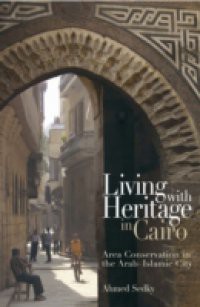The Arab-Islamic city has been always a glamorous urban dream in human cultural memory. This is manifested in Cairo, the world's largest medieval urban system where traditional lifestyles are still implemented. Nevertheless, despite the extensive efforts to preserve Historic Cairo, it is sadly vulnerable. Ahmed Sedky investigates the reasons behind this condition, exploring and comparing regional and international case studies. Questions such as how and what to conserve are raised and elaborated through the perspectives of different stakeholders. A resulting evaluative framework is accumulated that underpins the criteria for assessing area conservation in the Arab-Islamic context and that can be used to delineate the causes responsible for the present condition of Historic Cairo.

